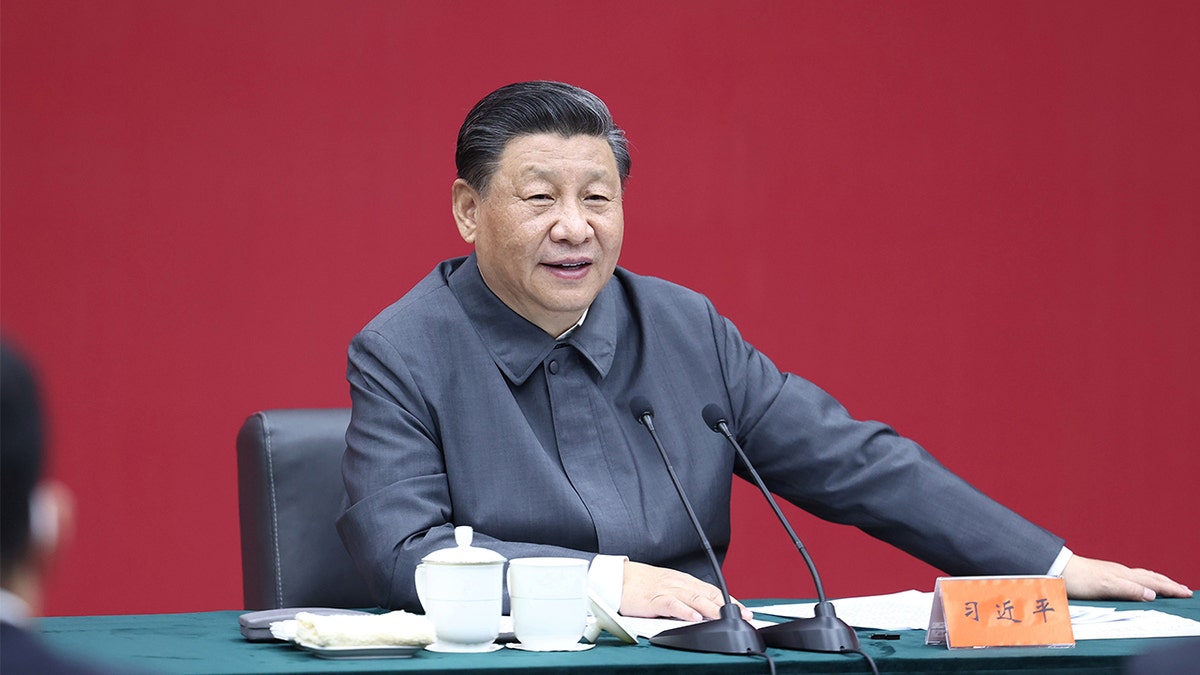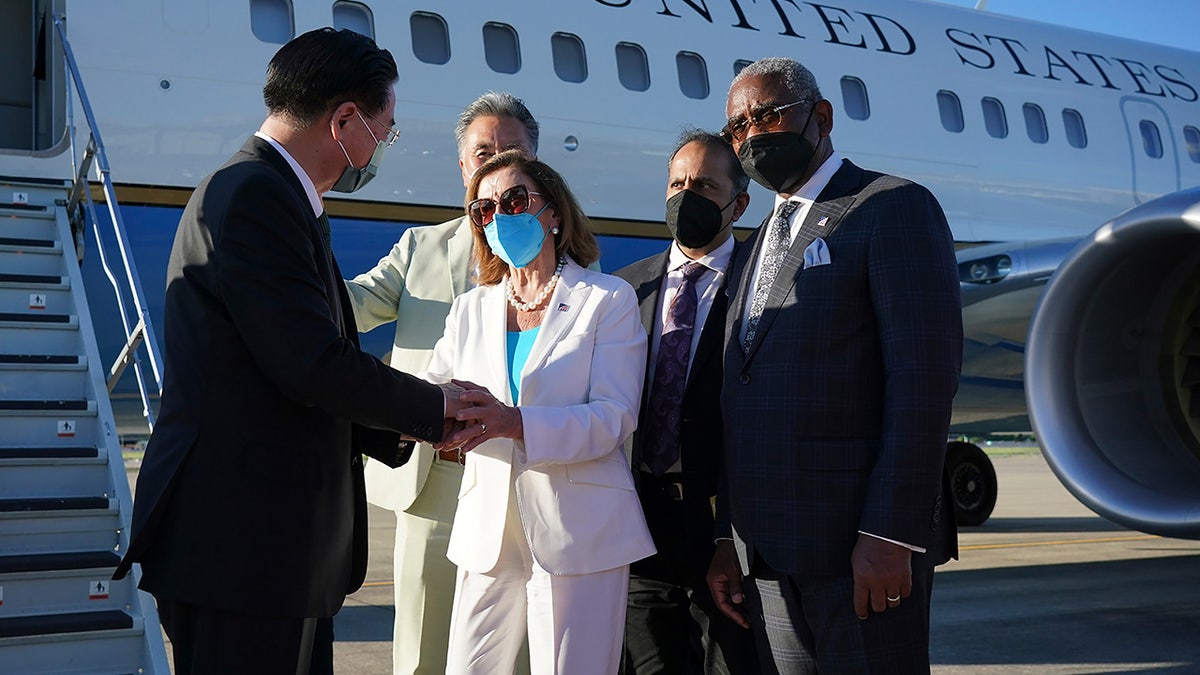Gen. Keane on China performing military exercises near Taiwan
Fox News senior strategic analyst Gen. Jack Keane (Ret.) on the potential for Taiwan to invade China
Missteps by the Biden administration and fellow Democrats like House Speaker Nancy Pelosi regarding Taiwan are making a shooting war with Communist China more likely and sooner than many think.
Beijing is quite clear about its intentions vis-à-vis our position regarding Taiwan, what the regime considers a renegade province. The day after Pelosi’s recent visit to the island nation, Chinese ballistic missiles landed in six areas encircling Taiwan to include inside Japan’s exclusive economic zone waters, and not by mistake. Precision guided missiles usually land where they are intended, a clear message from the Communist regime to the nervous democrats in Taipei and allies like Tokyo and Washington.
Certainly, the three-day live fire drill by China’s Peoples’ Liberation Army is evidence that Beijing believes an invasion of the island nation is plausible. Now the clock is ticking ever faster as that assault seems inevitable. However, the key question is: What does this mean for nations such as the United States?
CHINA HALTS MILITARY, CLIMATE TALKS WITH US IN RETALIATION FOR PELOSI VISIT
Let’s begin by dispelling a key misconception. In spite of President Biden’s repeated promises to rush to Taiwan’s aid if attacked by Beijing, we don’t have a mutual defense treaty with Taipei but we do have an interest in that country’s lion’s share -- 85 percent -- of the world’s production of semiconductors. In fact, we’ve lived up to our 1979 "One China" Taiwan Relations Act obligation by recognizing Beijing as the legitimate head of all Chinese people to include those in Taiwan.
What we don’t know is, given our so-called "strategic ambiguity policy" regarding Taiwan, whether as Biden said in Japan this May, the U.S. will rush to the island’s aid if China attacks. I’m doubtful about that promise and not just because we have insufficient forces in the western Pacific, but because China’s president is deadly serious about Taiwan and he has growing power to back-up his intentions.
The U.S. and the West must awaken to the reality that communist China intends to run the world and will destroy any nation in its path. We must quicken our efforts to mitigate that threat by radically adjusting our preparations.
We must accept the fact that President Xi isn’t bluffing when it comes to what he calls the break-away province -- Taiwan. Further, the ever-persistent Mr. Xi, who serves both as China’s president and Chairman of the Chinese Communist Party will very soon be more powerful and ready for action, no matter the assurances Ms. Pelosi gave Taiwanese President Tsai Ing-wen.
MIKE POMPEO SOUNDS ALARM ON 'FAULKNER FOCUS': 'THE CHINESE COMMUNIST PARTY KEEPS ME UP AT NIGHT'
This fall Xi will stand before the 20th Party Congress in a bid for an unprecedented third term in office, an outcome that will enshrine him as President for Life like his all-powerful predecessor Mao Zedong.
Xi, like Mao, is a hardened Marxist-Leninist who came from obscurity in 2013 to lead the communist regime back to its totalitarian roots away from the corruption that plagued China’s elite thanks to that country’s 1990s economic explosion.

Chinese President Xi Jinping, also general secretary of the Communist Party of China Central Committee and chairman of the Central Military Commission, sits down with representatives of teachers and students at a symposium and delivers an important speech during a visit to Renmin University of China in Beijing, capital of China, April 25, 2022. (Ju Peng/Xinhua via Getty Images)
Along with his party’s mandate to eliminate ideological corruption, Xi’s primary goal has always been to reunite Taiwan to Beijing’s control by ending the century-long family squabble.
Understand that the communist Chinese and the Kuomintang (the predecessors to the contemporary Taiwanese leadership) fought a civil war between 1927 and 1949 for the right to rule China. Except for the War Lord period (1916-1928) and the Japanese occupation (1937-1945), this internal family struggle continued until 1949 when the KMT suffered battlefield defeat. Then KMT leader Chiang Kai-shek and his army fled to Taiwan, and set-up a government in exile.

Taiwan's Foreign Minister Joseph Wu, left, speaks with U.S. House Speaker Nancy Pelosi as she prepares to leave in Taipei, Taiwan, Wednesday, Aug. 3, 2022. (Taiwan Ministry of Foreign Affairs via AP)
To further compound the West’s confusion about Taiwan, in 1950 President Harry Truman, after having accepted Beijing’s claim over Taiwan at the end of World War II (Cario Declaration of 1943), reversed our policy regarding that island in the wake of China’s support of North Korea’s invasion of South Korea (June 1950). That coincided with the emergent Cold War with the Soviet Union which led to the U.S. working with the KMT-led Taiwan government to ratify the Sino-American Mutual Defense Treaty in 1955. The treaty was abandoned by President Jimmy Carter in Beijing’s favor and replaced by the aforementioned Taiwan Relations Act.
CLICK HERE TO GET THE OPINION NEWSLETTER
Today, due to American geopolitical and ideological naivety and our so-called "strategic ambiguity policy" regarding Taiwan, the Chinese regime is a global power ready to take on the U.S. on all fronts – economic, military, technology, geopolitical and ideological. Unfortunately, as many China experts correctly conclude, Beijing could soon become a global hegemon and the United States could pay a severe price.
China’s ongoing kerfuffle with Taiwan isn’t going away and likely will become full-blown once President Xi locks-in his third term this fall.
Meanwhile, the Chinese generals are testing their mettle with long-range missiles anticipating a fight to win back what they consider sovereign Chinese territory. That much anticipated assault is no more than a couple of years away unless circumstances change. Then Katie-bar-the-door. Post-Taiwan, the world will begin to experience something akin to pre-World War II from President-for-Life Xi, who will begin throwing his weight around much like past tyrants Stalin, Mao and Hitler.
It’s past time to act. China poses a significant, credible threat on many fronts and its tentacles extend across the world like a giant octopus.
CLICK HERE TO GET THE FOX NEWS APP
The U.S. and the West must awaken to the reality that communist China intends to run the world and will destroy any nation in its path. We must quicken our efforts to mitigate that threat by radically adjusting our preparations.
Those preparations include resetting our relationship in key areas with China: economically – stop being so dependent upon the regime; ideologically – counter Beijing’s Marxist hatred for liberal democracies; technologically – stop leaking vital technologies that advance China’s modernization; security – sustain our military to always be more capable than the PLA; and geopolitically – sustain our allies and partners to counterbalance China’s efforts to recruit other nations to its authoritarian ways.












































